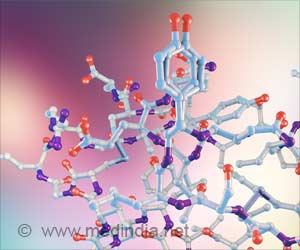Gut bacterial community of healthy adults is resilient and able to recover after short-term simultaneous exposure to three different antibiotics.

‘A rich and diverse gut microbiota is considered to promote health providing the human host with many competences to prevent chronic diseases. ’





Due the general bacterial-killing nature of antibiotics, it has been speculated that repetitive use of antibiotics deprives people of a rich gut bacterial environment and through this lead to adverse health effects. After the six months, however, the study participants were still missing nine of their common beneficial bacteria and a few new potentially non-desirable bacteria had colonized the gut. The findings are published today in Nature Microbiology.
"We show that the gut bacterial community of healthy adults are resilient and able to recover after short-term simultaneous exposure to three different antibiotics However, our findings also suggest that exposure to broad-spectrum antibiotics may dilute the diversity of the intestinal bacterial ecosystem. Antibiotics can be a blessing for preserving human health but should only be used based upon clear evidence for a bacterial cause of infection," explains study lead , Professor Oluf Pedersen, Novo Nordisk Foundation Center for Basic Metabolic Research.
Is the missing beneficial gut microbes in the Western world due to over usage of antibiotics? The study is a four-day intervention with three broad-spectrum so-called "last-resort" antibiotics in 12 adult healthy men. The method with a cocktail of three antibiotics was designed to mimic actual treatments in intensive care units.
The gut is a reservoir of hundreds of different bacterial species with antibiotic-resistant genes. This was confirmed in the study as these bacterial genes were the initiating force that led to the replenishment of bacteria in the gut.
Advertisement
Source-Eurekalert















